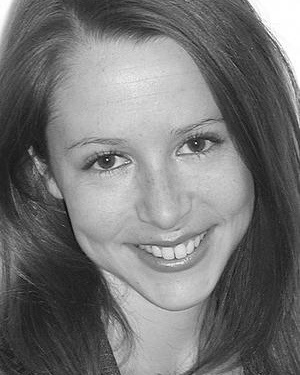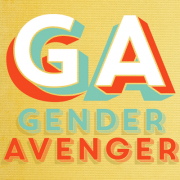
I’ve always agreed with the idea of being a feminist. But it had always been just that: an idea. Until the ultrasound technician asked me if I wanted to know what it was.
“Yes, please, I’d like to know.”
“I think it’s a girl.”
“You think?”
“I’d give it a 95 percent chance.”
“What percentage do you normally give?”
“80.”
My eyes welled up.
For some reason I’d always imagined that my first would be a boy. Probably because all the children I’d helped raise were male. I have two younger brothers, and the three other kids I’d nannied for were boys. I’d never taken care of a little girl. Now I was going to have one.
Ninety-eight percent of me was overcome with a joy almost on par with the joy I’d felt when I saw the word “pregnant” appear on the stick. That joy was what was welling in my eyes.
Two percent of me, though, set off in worried thought. Suddenly I became sensitive to anything that poses an affront to being female. It’s a sentiment I’ve heard echoed by friends who find out they’re having girls — they’re surprised by the specific type of concerns that come with carrying a fetus with two X chromosomes.
Over the following months, I paid more attention when I saw statistics such as the one that puts the number of college coeds who have survived rape or a rape attempt as high as 25%. I bristled when I saw lists in the media and conference panels that were either all-male or included just a token woman. When Jill Abrahamson, the first female editor of the New York Times, got fired for asking for pay commensurate with her predecessors — and called “pushy” to salt that wound — I took offense. When a big, famous company sent me a contract for a slam-dunk freelance gig, then rescinded the offer when the assigning editor found out I was pregnant and my due date fell before the deadline, I felt true discrimination for the first time.
These stabs I felt I was feeling not for me but for her. If we’re normal parents, we want better for our children than we had for ourselves. I want my daughter to grow up seeing female thought leaders as part of the dialogue, so that she knows to aspire. We need her generation to be seeing women in the public sphere — as lawmakers, professors, scientists, and writers — so that they know the possibilities. Let’s make sure that women are an equal part of leading this country if only to make it obvious to little girls that they can lead, too. It thrills me to think that a woman might be president when my daughter starts to come into political consciousness.
There’s a story that Madeleine Kunin, the former governor of Vermont, tells: Her children were young when she ran for office. Kunin served three terms, so when she decided not to seek a fourth, her kids were astonished to see a male replace her: Men can be governors? Likewise, when we take our daughters to see female doctors, dentists, and veterinarians, they come to believe that those jobs are women’s work too.
Before I knew my child was a girl, I wasn’t convinced I’d go back to work after maternity leave. After the sonogram, I decided to maintain my career’s momentum in part because I want my daughter to see, up close, that being a loving mother and having a fulfilling profession don’t need to be mutually exclusive.
I grew up adoring and worshipping my mom, whose status as a mother of three didn’t stop her from making a high-powered career for herself in the male-dominated world of software programming and information technology. Each evening without fail, she cooked us dinner and spent quality time with us until we went to bed. We always knew we had her full attention no matter what. She may not have meant to, but my mom taught me that femininity and ambition can elegantly coexist. (She probably learned that from her mom, who was fluent in eight languages and worked for an airline in the 1960s — not as a stewardess.)
Thanks to my mother and other strong female role models, it never occurred to me not to have a career. I always knew I could make money of my own, and I started to when I was 15. I never expected to depend on anyone else, though my father and husband are excellent providers. Now that I have a daughter, I want her to know and understand these same things.
Which is by no means a dig at stay-at-home moms, whom I bow down to for their level of commitment and endurance. It’s just a personal decision derived from my own experiences and circumstances.
If my daughter decides to be a doctor or an architect, perfect. If she opts to be a SAHM, more power to her. All I want is to know that she is free to become what and who she wants to be, without me or anyone or anything holding her back.



The views and opinions expressed in this post are those of the author(s) and do not necessarily reflect those of MomsRising.org.
MomsRising.org strongly encourages our readers to post comments in response to blog posts. We value diversity of opinions and perspectives. Our goals for this space are to be educational, thought-provoking, and respectful. So we actively moderate comments and we reserve the right to edit or remove comments that undermine these goals. Thanks!